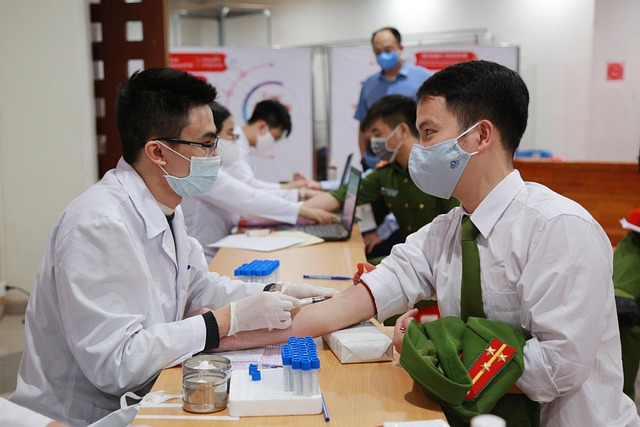The integration of Artificial Intelligence (AI) into healthcare has revolutionized various fields, with AI-based hematology at the forefront of this transformative journey. As the demand for accurate and rapid diagnostics continues to grow, the role of technology in healthcare, particularly in hematology, has become increasingly vital.
Traditional hematological assessments often rely on manual interpretations, which can be time-consuming and prone to human error. However, with the emergence of AI-powered systems, healthcare professionals are now able to obtain precise results at an astonishing speed. These systems process vast amounts of data, analyzing complex patterns in blood samples that would otherwise be undetectable. By leveraging deep learning algorithms, these AI tools are enhancing the accuracy of diagnoses, consequently improving patient outcomes.
One of the remarkable advantages of AI-based hematology is its potential to streamline lab operations. With AI handling preliminary assessments, laboratories can significantly reduce turnaround time, ensuring timely interventions. Patients are no longer left waiting in uncertainty; results are delivered swiftly, allowing for quick decision-making. This technological innovation not only hastens treatment but also fosters a sense of security among patients, knowing that their health is being monitored and addressed promptly.
Moreover, the accessibility of AI tools in resource-limited settings is a game changer. Many regions struggle with a shortage of qualified healthcare professionals. AI-powered hematology equipment can bridge this gap by offering reliable diagnostics in environments lacking extensive medical infrastructure. This innovation empowers local practitioners, enabling them to provide effective care with greater confidence, while patients enjoy improved health services.
In addition to accelerating diagnostics, AI-driven hematological solutions aid in the early detection of various blood disorders, including anemias and leukemias. AI systems can analyze historical patient data to identify risk factors and predict potential health issues before they manifest. By catching diseases at an early stage, healthcare providers can implement preventative measures, ultimately saving lives.
Health innovations in AI-based hematology are also contributing to personalized medicine. Tailoring treatments based on a patient’s unique hematological profile is becoming feasible, thanks to the nuanced insights that AI can provide. This individual-focused approach allows for more effective treatments with fewer side effects, enhancing the overall patient experience.
As we look to the future, the prospects of integrating AI in hematology appear limitless. With ongoing advancements, we can anticipate even more sophisticated tools that will enhance diagnostic precision, further reduce costs, and expand healthcare accessibility. The journey of technological and health innovations in this domain is steadily moving forward, promising a brighter, healthier future for everyone.




